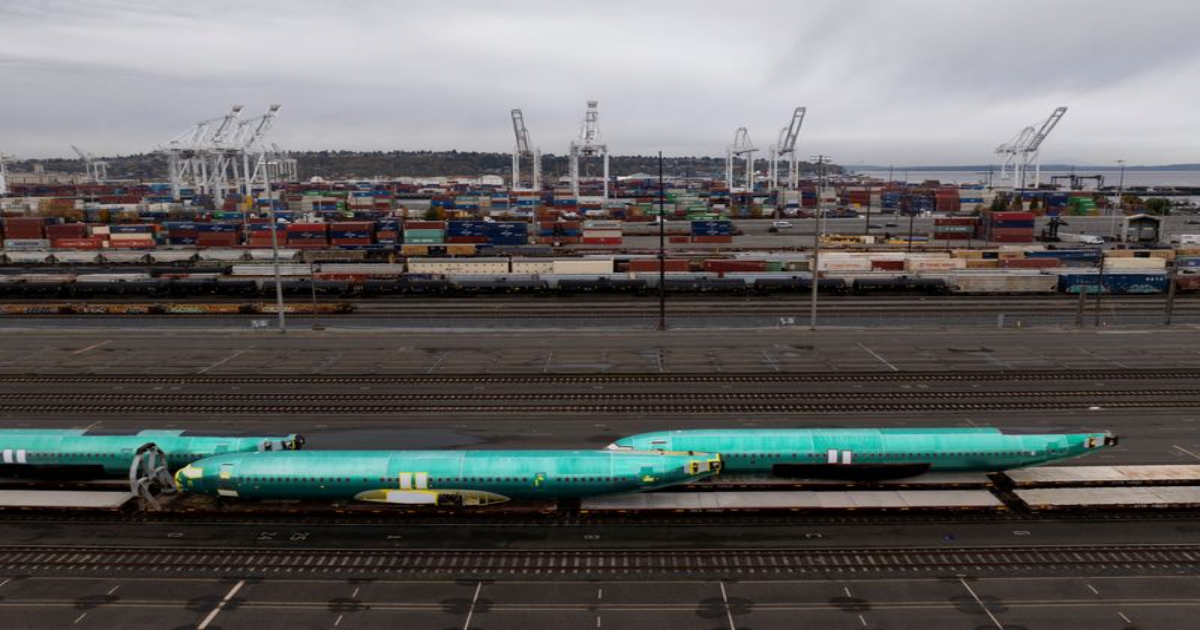(Reuters) -China has ordered its airlines not to take any further deliveries of Boeing jets in response to the U.S. decision to impose 145% tariffs on Chinese goods, Bloomberg News reported on Tuesday, citing people familiar with the matter.
Shares of Boeing, which looks at China as one of its biggest growth markets and where rival Airbus holds a dominant position, were down 3% in premarket trading. Airbus shares were up 1%.
The global aerospace industry is in the middle of a full-blown tariff war, with planemakers, airlines and suppliers reviewing contracts worth billions of dollars, after U.S. supplier Howmet Aerospace ignited an debate over who should bear the cost of the tariffs.
China’s top three airlines – Air China, China Eastern Airlines and China Southern Airlines – had planned to take delivery of 45, 53 and 81 Boeing planes, respectively, between 2025 and 2027.
Beijing has also asked that Chinese carriers halt purchases of aircraft-related equipment and parts from U.S. companies, the Bloomberg report said.
China’s move to halt purchases of aircraft-related components is expected to raise maintenance costs for the jets flying in the country.
The Chinese government is also considering ways to provide assistance to airlines that lease Boeing jets and are facing higher costs, Bloomberg News reported.
It was China that first grounded Boeing’s 737 MAX jets after two fatal crashes in 2018 and 2019 killed nearly 350 people. China had also suspended most orders and deliveries of the jet in 2019.
Boeing did not immediately respond to a Reuters request for comment.
The halt in deliveries to China marks yet another setback for the planemaker, which is navigating a slow recovery following a challenging year marked by a labor strike, enhanced regulatory scrutiny and persistent supply chain disruptions.
Beijing’s action also follows its decision last week to hike levies on U.S. imports to 125% in retaliation against U.S. tariffs, which would significantly raise the cost of Boeing jets bound for Chinese carriers and potentially lead airlines to consider alternatives such as Airbus and domestic player COMAC.
Boeing’s shares have shed more than a third of their value since a mid-air door panel blowout on a brand-new MAX 9 jet last year, which triggered a fresh wave of challenges for the company.
The escalating tit-for-tat tariffs between the world’s two biggest economies risk bringing goods trade between the two countries to a standstill, according to analysts. That trade was valued at over $650 billion in 2024.
(Reporting by Shivansh Tiwary and Harshita Meenaktshi in Bengaluru; Editing by Mrigank Dhaniwala)
